|
|

|
|
� |
|
| � |
|
|
� |
|
| � |
 |
People
who leave their countries because of persecution
and look for safety elsewhere are called 'asylum
seekers'. When they arrive in another country
and are allowed to stay, they become refugees.
|
| There
is nothing new about refugees coming to the
UK. During and after the Second World War,
250,000 Polish refugees arrived in the country,
and between 1870-1914, 110,000 Jewish refugees
fleeing from Eastern Europe arrived in the
UK. |
 |
|
� |
|
|
� |
|
|
|
� |
|
| � |
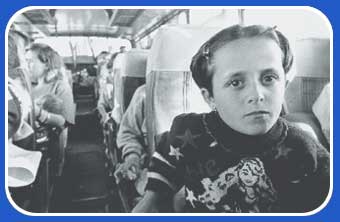 �
Save the Children
�
Save the Children |
There
are about 69,000 refugee children in the UK from
many countries and backgrounds. Some of these
children have arrived on their own, because they
have lost their parents or been separated from
them. Every one has their own story to tell. To
read about one family's story, choose 'A True
Story of a Refugee' from the menu at the top of
the page.
|
� |
|
|
� |
|
|
|
� |
|
| � |
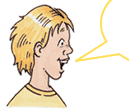 |
All
refugee children that arrive in the UK are
different. Some of them may have enjoyed a
safe family life and a good school in the
past. Others may have suffered terrible scenes
of violence and horror. |
| But
despite their different backgrounds, all refugee
children arriving in the UK share new feelings
and experiences. Starting life all over again
is really tough. How do you feel when you
have to start something new? |
 |
 |
Like
a new class or a new school �
In the boxes below, you can read some of the
things refugee children have said about their
feelings when they were experiencing life
in the UK for the first time. |
|
� |
|
|
� |
|
|
|
� |
|
| � |
| Here,
I feel safer; I believe I won't
get bullied here. |
| I
am not used to the cold weather
in the winter here. The food is
quite strange too. |
| I
arrived in the UK with none of
my own things from home. |
| I
don't understand the jokes that
other children make in my class. |
|
| No
one knows what horrible things
I saw before I left my home. |
| Some
students bully me and call me
names in the playground. |
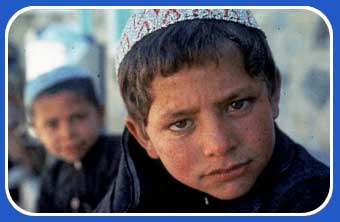 �
David Stewart-Smith/Save the Children
�
David Stewart-Smith/Save the Children
| At
the moment, my whole family
is living in a small room in
a Bed and Breakfast and I have
nowhere to do my homework. |
| My
parents are finding it difficult
to get a job because they don't
speak English |
|
|
|
� |
|
|
� |
|
|
|
� |
|
| � |
 |
I
know that I have felt some of these feelings
when I went to a new school. I can't imagine
how it would feel to experience some of the
others. Which of these feelings have you felt
in some way? Which ones do you think would
be the most difficult to deal with? |
|
� |
|
|
� |
|
|
|
� |
|
| � |
|
|
| Some
of you will know how it feels to go to a new
school for the first time. Imagine if you
had been forced to leave your home to live
in a strange, new country as well � How do
you think you would help refugee children
to feel welcome in your school so they don't
have to experience some of the things they
have written? You can use your ideas to take
part in our competition,
and win some prizes too! |
|
� |
|
|
� |
|
|
|
� |
|
| � |
In
the UK, where do we learn about refugees? Click
on the question marks for clues.
 |
Which
of these do you think would give the truest
picture of a refugee and their life?
| Why
are some British people hostile to refugees? |
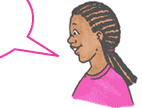 |
|
|
� |
|
|
� |
|
|
|
� |
|
| � |
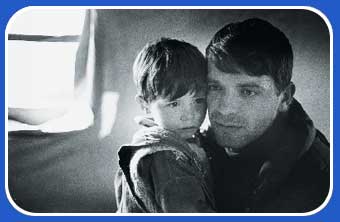 � Howard Davies/Save the Children.
� Howard Davies/Save the Children.
|
|
� |
|
|
� |
|
|
|
� |
|
| � |
 |
Some
people fear anything or anybody that is new.
For them, it is difficult to share and learn
from cultures that are strange to them. Some
people believe that refugees come to the UK
because they will be given homes and jobs
to make life easier for them. As a result,
they think that refugees take away homes and
jobs from British people. But of all the people
that live in the UK, only 0.3% are refugees. |
| Also,
refugees come here because they are forced
to, and adult refugees are usually skilled
and educated which can help make this country
a better place. |
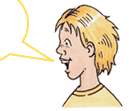 |
 |
A
lot of what we know about refugees comes from
what we hear or read in the papers. What do
they say about refugees, and are they true?
To find out, collect magazine and newspaper
articles on refugees. |
| Some
refugees may not find a new home. Instead,
they live for some time in a refugee camp.
Click on the button below to find out more
about life in a refugee camp in Ethiopia.
|
 |
|
� |
|
|
� |
|
|
|
� |
|
|
� |
|
|
|

